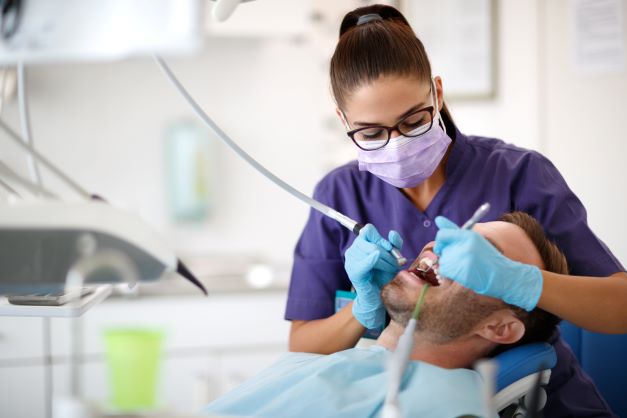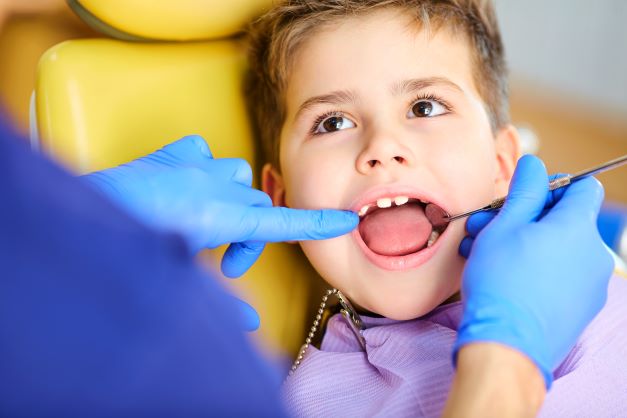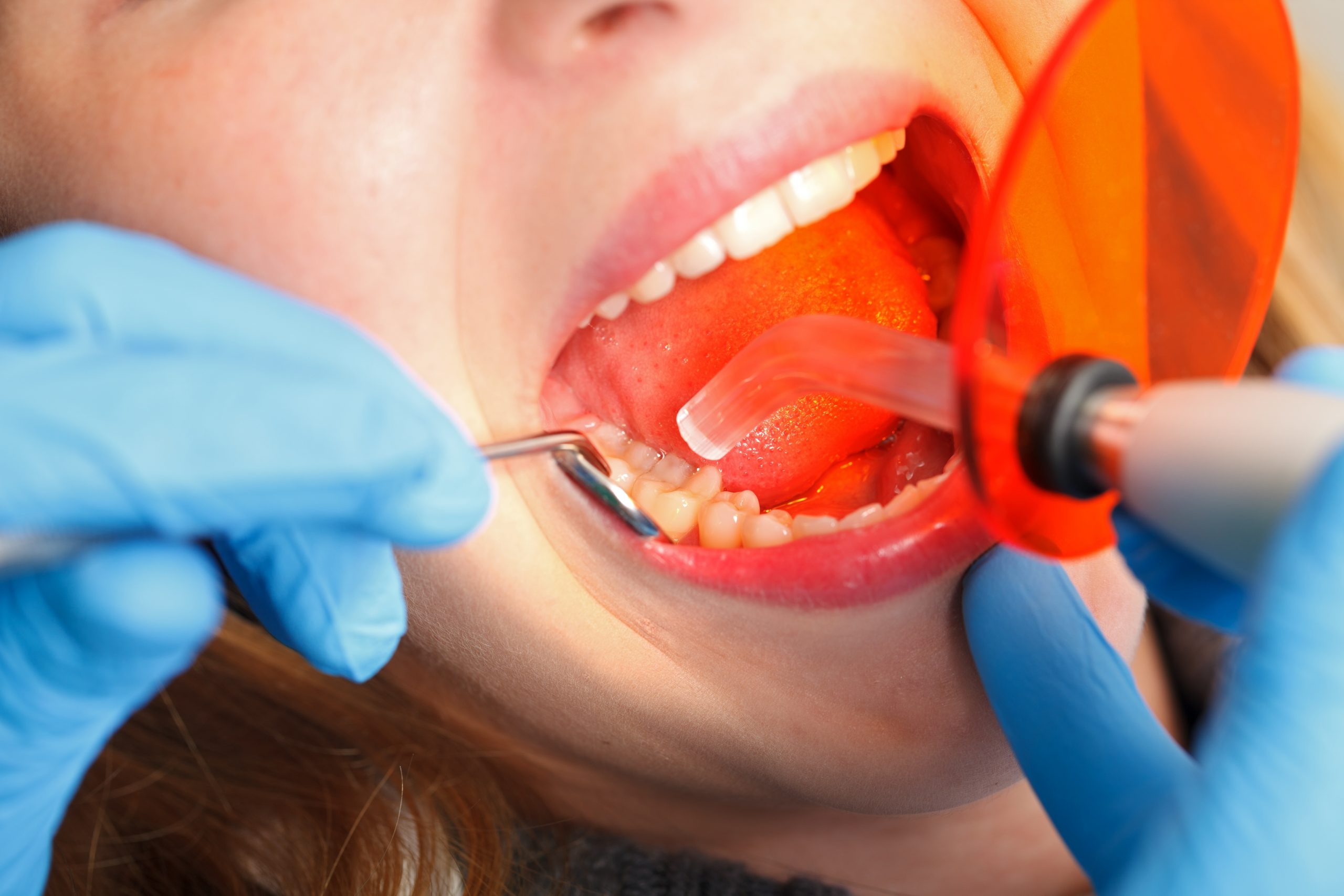19 Aug How Long Does Dentist Anaesthetic Last? Understanding the Duration and Effects
Visiting the dentist can often provoke a mix of emotions, especially when a procedure involves anaesthetic. One of the most common questions patients ask is, “How long does dentist anaesthetic last?” Whether you’re preparing for a routine filling or a more complex procedure, understanding how long the numbing sensation will persist can help you better prepare for your visit. In this article, we’ll explore the factors that influence the duration of dental anaesthetic, the different types used, and what you can expect after your treatment.

Understanding Dental Anaesthetic
Dental anaesthetics are medications used to temporarily block the sensation in specific areas of the mouth, allowing the dentist to perform procedures without causing pain to the patient. There are several types of anaesthetics, with local anaesthetic being the most commonly used in dentistry. Unlike general anaesthesia, which renders a patient unconscious, local anaesthetic only numbs the area where it’s applied, enabling the patient to remain awake and alert during the procedure.
The most frequently used local anaesthetics in dental practices include lidocaine, articaine, and bupivacaine. Each of these has different properties that can influence how long the numbness will last.

How Long Does the Numbness Last?
The duration of numbness from dental anaesthetic is influenced by various factors, such as the type of anaesthetic administered, the dosage, the specific area being treated, and how the patient’s body reacts to the medication. Typically, most dental anaesthetics provide a numbing effect that lasts between one to four hours, with the most intense numbness occurring within the first hour following the injection.
For instance, lidocaine, which is one of the most frequently used anaesthetics in dental care, usually results in numbness that persists for about one to two hours. However, depending on the amount administered and the particular area treated, the effect can extend up to three hours. Articaine, another commonly used anaesthetic, is known for its quick onset and high effectiveness, making it a popular choice for more complex dental procedures. The numbness from articaine generally lasts between two to three hours, although it might wear off slightly sooner, especially in procedures involving the lower jaw.
On the other hand, bupivacaine is an anaesthetic with a longer-lasting effect compared to lidocaine and articaine. Its numbing sensation can endure for about three to four hours, making it particularly useful in situations where extended numbness is desired, such as after tooth extractions or oral surgery.

Factors Influencing the Duration of Anaesthetic
Several factors can influence how long the anaesthetic lasts. Understanding these can help you anticipate the effects and duration more accurately:
1. Type of Procedure: The duration of numbness can vary based on the type of dental procedure. For example, procedures involving the lower jaw, such as molar extractions, may require a higher dosage or a different type of anaesthetic, leading to longer-lasting numbness.
2. Injection Site: The specific location of the anaesthetic injection also plays a role. Injections in areas with dense tissue, such as the lower jaw, may result in longer-lasting effects compared to injections in softer tissues like the upper gums.
3. Patient’s Metabolism: Each person metabolises medications at a different rate, meaning the effects of the anaesthetic can wear off faster or slower depending on individual metabolic rates. Factors such as age, weight, and overall health can all contribute to this variation.
4. Dosage and Concentration: The amount of anaesthetic administered and its concentration will directly impact how long the numbness lasts. Higher dosages typically result in prolonged effects.
What to Expect After the Procedure
After the dental procedure is completed, the effects of the anaesthetic will begin to gradually diminish, and the numbed area will slowly regain sensation. As this occurs, it’s common for patients to experience a tingling or prickling sensation in the affected area, which is a typical part of the process and usually fades after a short while. Additionally, some sensitivity in the area may become noticeable, particularly if the procedure was extensive, but this discomfort generally resolves on its own within a few hours.
During the period when the anaesthetic is wearing off, you may find that speaking, chewing, or drinking becomes temporarily challenging, especially if the lower jaw was treated. This is due to the lingering effects of the anaesthetic on the muscles that control the lips and tongue. Moreover, it’s not uncommon for the injection site to feel a bit tender or, in some cases, to appear slightly bruised. These effects are usually temporary and can be managed with over-the-counter pain relief if needed.

When to Seek Advice
While the effects of dental anaesthetic are typically short-lived and resolve on their own, there are rare instances where you might need to consult your dentist. If the numbness persists beyond several hours, or if you experience severe pain, swelling, or signs of an allergic reaction such as difficulty breathing or a rash, it’s important to contact your dental practice immediately.
At Hendford Dental Practice, we prioritise your comfort and safety. Our experienced team is dedicated to providing personalised care, ensuring that every procedure is as painless and stress-free as possible. If you have any concerns about the use of anaesthetics or the duration of their effects, please don’t hesitate to discuss them with us before your treatment.
Thanks for reading today’s blog!
Understanding how long dentist anaesthetic lasts can help alleviate some of the anxiety associated with dental visits. The duration of the numbness is influenced by various factors, including the type of anaesthetic used, the specific procedure, and individual patient differences. Generally, you can expect the numbness to last between one to four hours, allowing you to plan your day accordingly. If you have any questions or concerns about your upcoming dental treatment, our team at Hendford Dental Practice is here to support you every step of the way.
A perfect smile is just a call away
Contact Hendford Dental Practice today for more information, and to arrange a check-up or for some friendly and helpful advice.
Latest Posts
-
I Think I’ve Got an Abscess in My Mouth! What Do I Do Now?
-
My Filling Fell Out – What To Do
-
What Happens To Teeth Under Veneers?
-
Top 10 Tips For Maintaining Great Veneers
-
How Long Does Teeth Whitening Last?
-
Should You Whiten Your Teeth at Home?
-
What Is A Partial Denture?
-
Why Flossing is Important
-
How Long Does Dentist Anaesthetic Last? Understanding the Duration and Effects
-
How Do Dentists Remove Old Fillings? A Step-by-Step Insight
-
What Are The Hardest Teeth To Extract For A Dentist?
-
The Basics of Brushing Your Teeth


No Comments